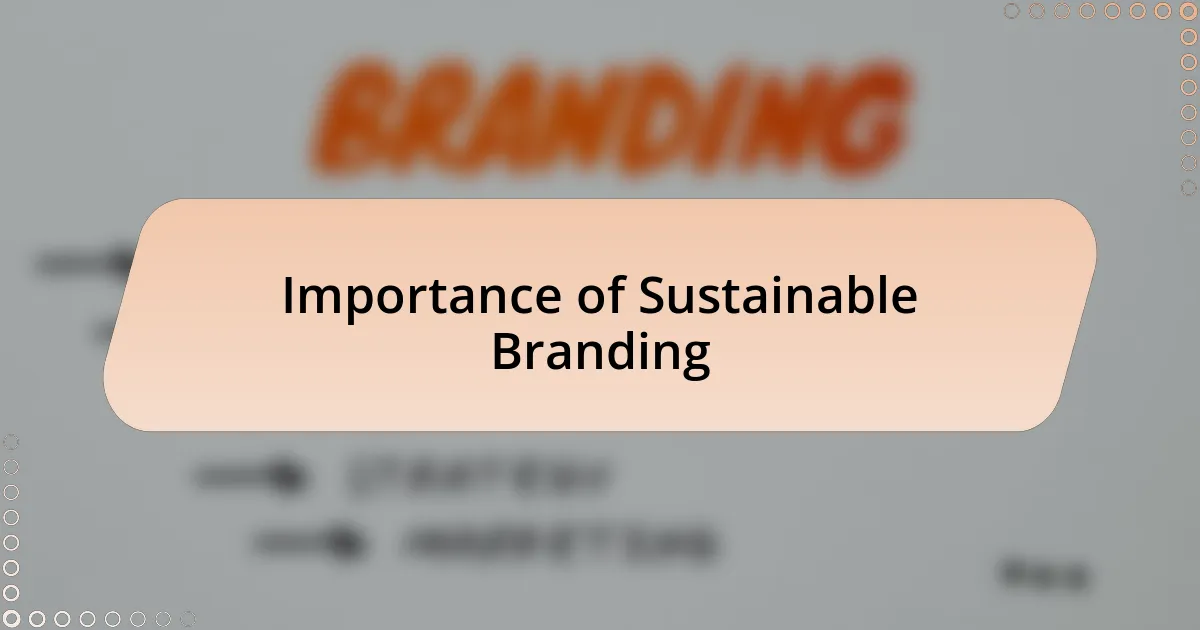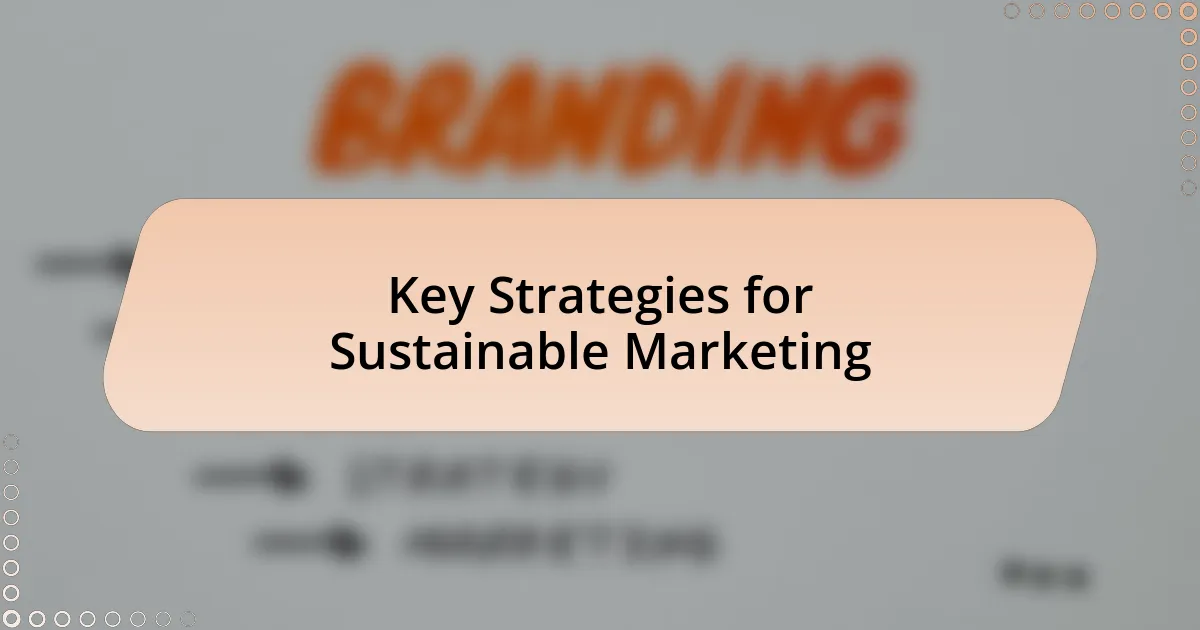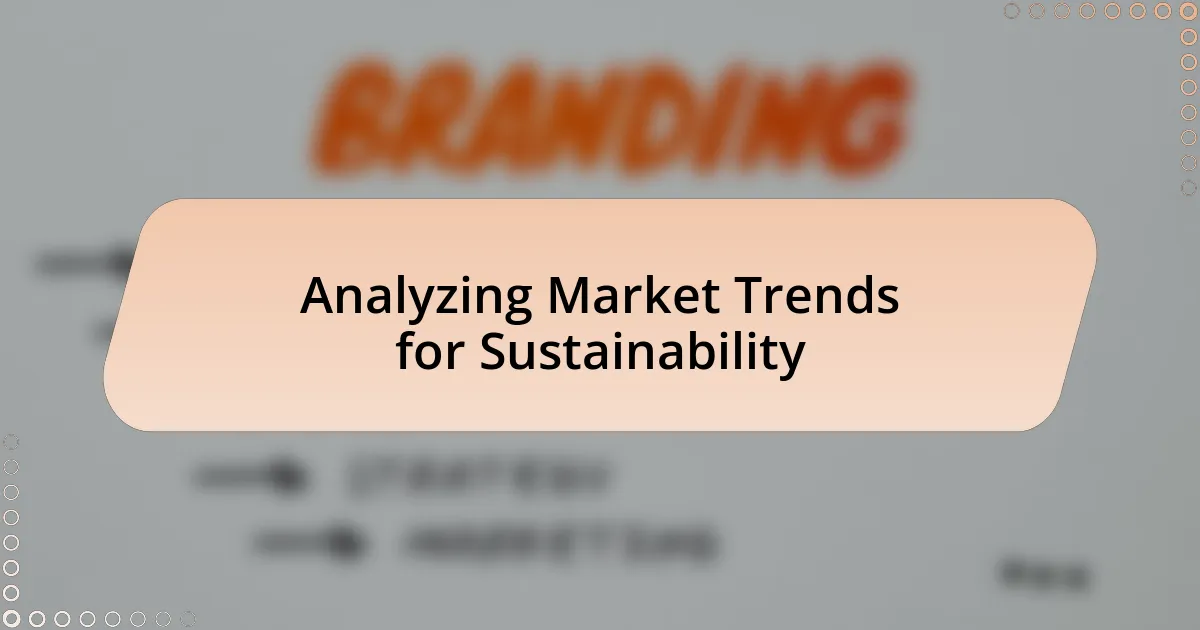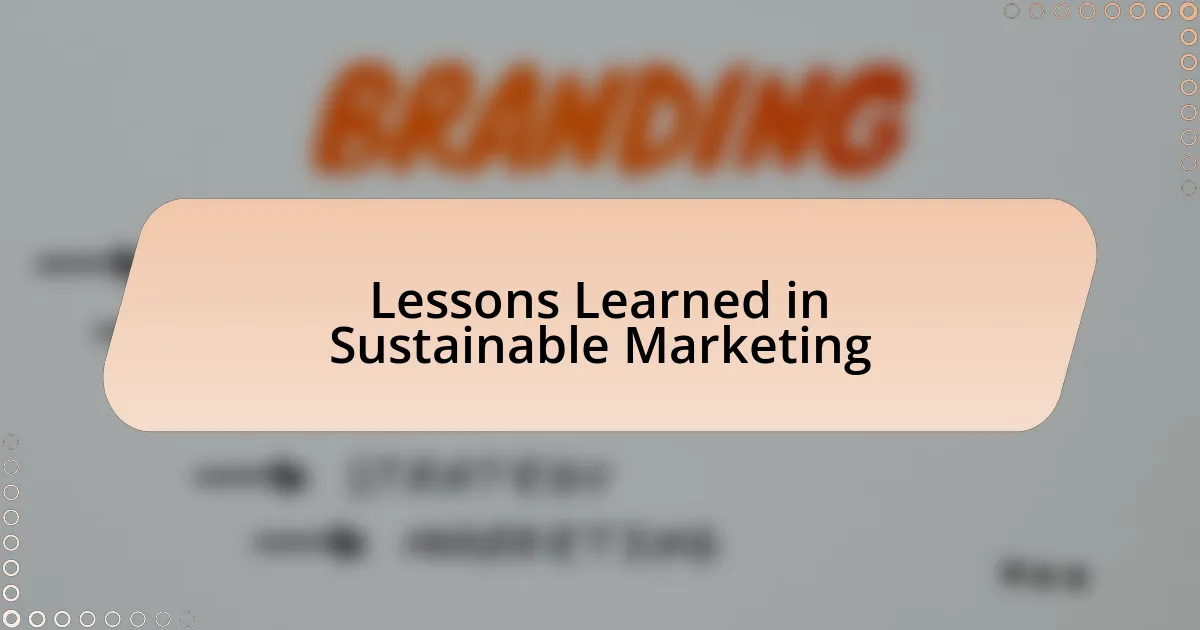Key takeaways:
- Sustainable brand positioning requires genuine alignment between a brand’s values and operations to build consumer trust.
- Effective storytelling and transparency in marketing can create emotional connections and foster customer loyalty.
- Community involvement and local collaborations enhance a brand’s sustainability profile and engage consumers meaningfully.
- Staying attuned to market trends and utilizing data analytics is vital for brands to adapt and lead in sustainability efforts.
Author: Evelyn Harper
Bio: Evelyn Harper is an award-winning author known for her captivating novels that explore the complexities of human relationships and the beauty of everyday life. With a background in psychology and a passion for storytelling, she weaves intricate narratives that resonate with readers around the globe. Evelyn’s work has been featured in numerous literary magazines, and her debut novel was listed as a bestseller. When she’s not writing, she enjoys hiking in the mountains of her home state, Oregon, where she draws inspiration from nature and the world around her.
Understanding Sustainable Brand Positioning

Sustainable brand positioning goes beyond mere marketing; it’s about embedding sustainability into the core identity of a brand. I remember when I first encountered a brand that genuinely committed to sustainability. Their messaging was not just a trendy buzzword but reflected a deep-rooted commitment that resonated with me as a consumer. How do we tap into this sincerity and authenticity in our own branding efforts?
To me, effective sustainable brand positioning requires a genuine alignment between a brand’s values and its operations. I once worked with a company that struggled with this alignment; they marketed eco-friendly products, but their supply chain was anything but sustainable. This disconnect created skepticism among their audience. When consumers sense such discrepancies, it can dramatically undermine trust—something that’s hard to rebuild once lost.
Exploring sustainable brand positioning also invites us to evaluate how our brands impact the world. Have you ever noticed how brands that prioritize sustainability often cultivate a passionate community around them? I find it inspiring to see customers not just buying products but advocating for brands because they feel they are part of a larger purpose. This emotional connection is invaluable and reinforces the idea that sustainability can drive loyalty and long-term success.
Importance of Sustainable Branding

Sustainable branding is essential because it aligns a company’s mission with the modern consumer’s values. I recall a recent experience with a local coffee shop that prided itself on using ethically sourced beans. The moment I walked in, I felt their dedication to the cause—it wasn’t just about coffee; it was about making a difference. This connection encouraged me to choose them over a larger, less conscious chain, demonstrating how sustainability can influence purchasing decisions.
Moreover, brands that embrace sustainability often enjoy a competitive edge in an increasingly crowded marketplace. I once collaborated with a clothing brand that focused on eco-friendly materials. Their commitment attracted attention not only for their innovative designs but also for their ethics, leading to increased sales. It made me realize that people want to support brands that they can trust to contribute positively to the environment and society.
This approach not only builds a positive reputation but also fosters customer loyalty. I think back to a skincare brand I loved that initiated a “return, reuse, and recycle” program. Not only did it encourage me to remain engaged, but it also instilled a sense of pride in my purchasing choices. Isn’t it interesting how a brand’s commitment to sustainability can create a community of advocates who feel empowered to spread the word?
Key Strategies for Sustainable Marketing

Certainly! Diving into the strategies for sustainable marketing, it’s essential to understand the power of storytelling. I once attended a seminar where a brand shared their journey behind sourcing materials sustainably. Their narrative not only resonated with the audience but also transformed how we viewed their products. Have you ever felt more connected to a purchase after learning about its story? That experience reinforced to me how crucial it is for brands to weave authenticity and transparency into their marketing strategies.
In my experience, collaborating with local partners can significantly enhance a brand’s sustainability profile. I worked with a bakery that sourced ingredients from community farmers. This local emphasis resonated deeply with their customers, fostering a bond that extended beyond the products. The impact was tangible; not only did they boost sales, but they also cultivated a sense of pride among patrons who felt they were supporting their community. Isn’t it fascinating how local collaborations can turn customers into brand ambassadors?
Another effective strategy I’ve observed is implementing eco-friendly practices within marketing campaigns. I remember a campaign by a tech company that encouraged customers to recycle their old devices in exchange for discounts. This not only promoted sustainability but also engaged consumers in a positive way. Have you ever participated in something like that? It’s rewarding to see how brands can motivate customers to take action for the environment while simultaneously forging a deeper connection. Engaging marketing strategies like these can inspire loyalty while significantly contributing to a sustainable future.
Analyzing Market Trends for Sustainability

Analyzing market trends for sustainability requires a keen eye for evolving consumer preferences. I remember attending a focus group where participants passionately discussed their desire for brands to embrace eco-friendly practices. Listening to their feedback illuminated how vital it is for businesses to stay attuned to what matters to their audience. Have you noticed how brands that genuinely adapt to sustainability trends often lead the market?
It’s also intriguing how data analytics can provide insights into consumer behavior regarding sustainability. While working on a project for a clothing line, we utilized analytics to reveal that shoppers were increasingly interested in the environmental impact of their purchases. This finding led us to adjust our marketing approach, focusing on eco-conscious messaging. Isn’t it amazing how the right data can steer a brand toward more meaningful engagements?
Finally, I find the rise of certifications and eco-labels to be a fascinating aspect of market trends. I had a client in the food industry who proudly showcased their organic certification, which not only set them apart from competitors but also built trust with consumers. This experience taught me that these labels not only reflect commitment but also tap into a growing desire for transparency. How does your favorite brand highlight its sustainability efforts?
Lessons Learned in Sustainable Marketing

Lessons Learned in Sustainable Marketing
One significant lesson I’ve learned is the power of storytelling in sustainable marketing. During a campaign for an eco-friendly cosmetics brand I worked on, we shared the founder’s journey of transitioning from conventional to sustainable products. This authentic narrative resonated with consumers, sparking genuine interest and creating an emotional connection. Isn’t it fascinating how a personal touch can transform a brand’s image?
Another critical insight is the importance of community involvement. I once organized a local clean-up event for a sustainable fashion brand, and the turnout was incredible. It struck me how engaging directly with the community not only reinforced our sustainability message but also fostered loyalty among participants. Have you ever felt more connected to a brand because of its active role in your community?
Lastly, transparency is non-negotiable in sustainable marketing. I remember a time when I advised a client on being open about their supply chain practices. They hesitated at first but eventually shared stories about the artisans behind their products. The response was overwhelmingly positive, proving that consumers value honesty. How often do you check the behind-the-scenes of the brands you support?